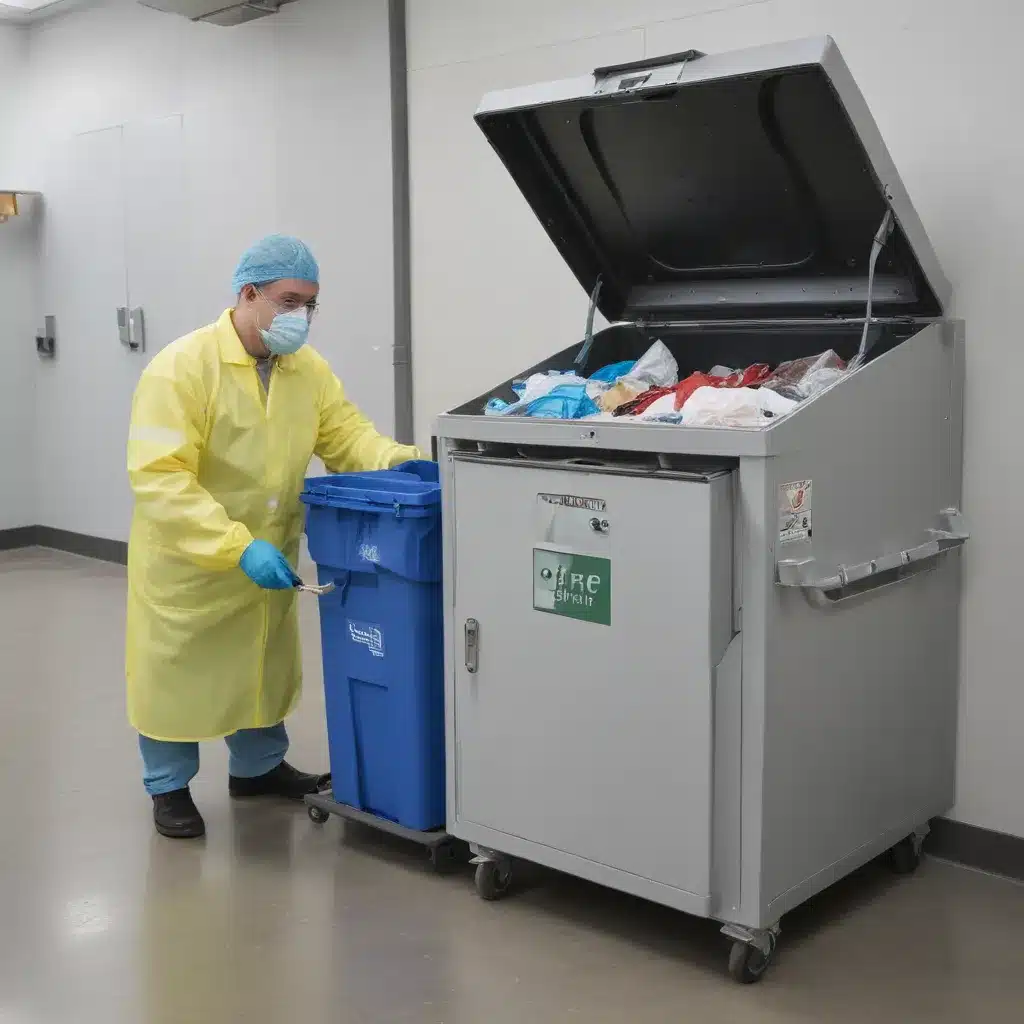Revolutionizing the Way We Manage Medical Waste
As the owner of Adam Cleaning, a cleaning service company based in Nottingham, UK, I’ve seen my fair share of medical waste handling challenges. From navigating the labyrinth of regulations to ensuring the safety of my team, it’s a constant balancing act. But what if I told you there’s a better way? A way that not only protects our environment and communities, but also revolutionizes the entire industry?
Uncovering the Sanitation Crisis
Let me paint you a picture. Imagine a world where over half the population either practices open defecation or uses unsafe sanitation facilities. A world where poor sanitation causes the deaths of more than 1,200 children under the age of 5 every day – more than from AIDS, measles, and tuberculosis combined. Sounds like a dystopian nightmare, right? Unfortunately, this is the reality we’re facing.
According to the Gates Foundation, about 4.5 billion people – more than half the world’s population – are either practicing open defecation or using unsafe sanitation facilities and services. This not only poses a grave threat to public health, but also has a staggering economic impact, costing the world an estimated $223 billion every year.
Reinventing the Toilet
So, what’s the solution? Enter the “reinvented toilet,” a revolutionary technology that’s been making waves in the world of sanitation. Developed by the Gates Foundation’s Reinvent the Toilet Challenge, these innovative systems don’t require any connections to the electrical grid, water supply, or sewers.
These toilets work using internal combustion and chemical treatment, and they can be set up in areas that are hard to reach with traditional infrastructure. They can deliver the same benefits as toilets connected to sewers, plus wholly new benefits that include the removal of human pathogens and the generation of usable water and electricity.
Applying the Principles of Reinvention
As a cleaning service company, we’re no strangers to the challenges of medical waste handling. But what if we could apply the same principles of reinvention to this industry? What if we could revolutionize the way we manage medical waste, making it safer, more efficient, and more environmentally friendly?
The Veterans Affairs Maryland Health Care System (VAMHCS) has already taken steps in this direction with their Green Environmental Management System (GEMS) program. By implementing a framework to manage their environmental impacts, they’ve been able to minimize their waste, improve stormwater runoff, and comply with all applicable environmental laws and regulations.
Embracing Innovation
Imagine a world where medical waste is no longer a source of concern, but a resource to be harnessed. Where innovative technologies like the reinvented toilet are applied to the handling of hazardous materials, creating a safer, more sustainable future for our communities.
According to the National Institutes of Health, the annual market value for new sanitation technologies designed for low-resource settings, such as the reinvented toilet, could potentially reach more than $6 billion globally by 2030. This presents an incredible opportunity for forward-thinking companies like ours to lead the charge in transforming the medical waste industry.
Conclusion: A Cleaner, Safer Future
As I reflect on the challenges we’ve faced in the past and the exciting possibilities of the future, I can’t help but feel a sense of optimism. By embracing innovation, championing sustainability, and putting the safety of our communities first, we can redefine the way medical waste is handled, paving the way for a cleaner, healthier world.
At Adam Cleaning, we’re committed to being at the forefront of this revolution. Join us as we reimagine the future of medical waste handling and create a lasting impact on the world around us.







